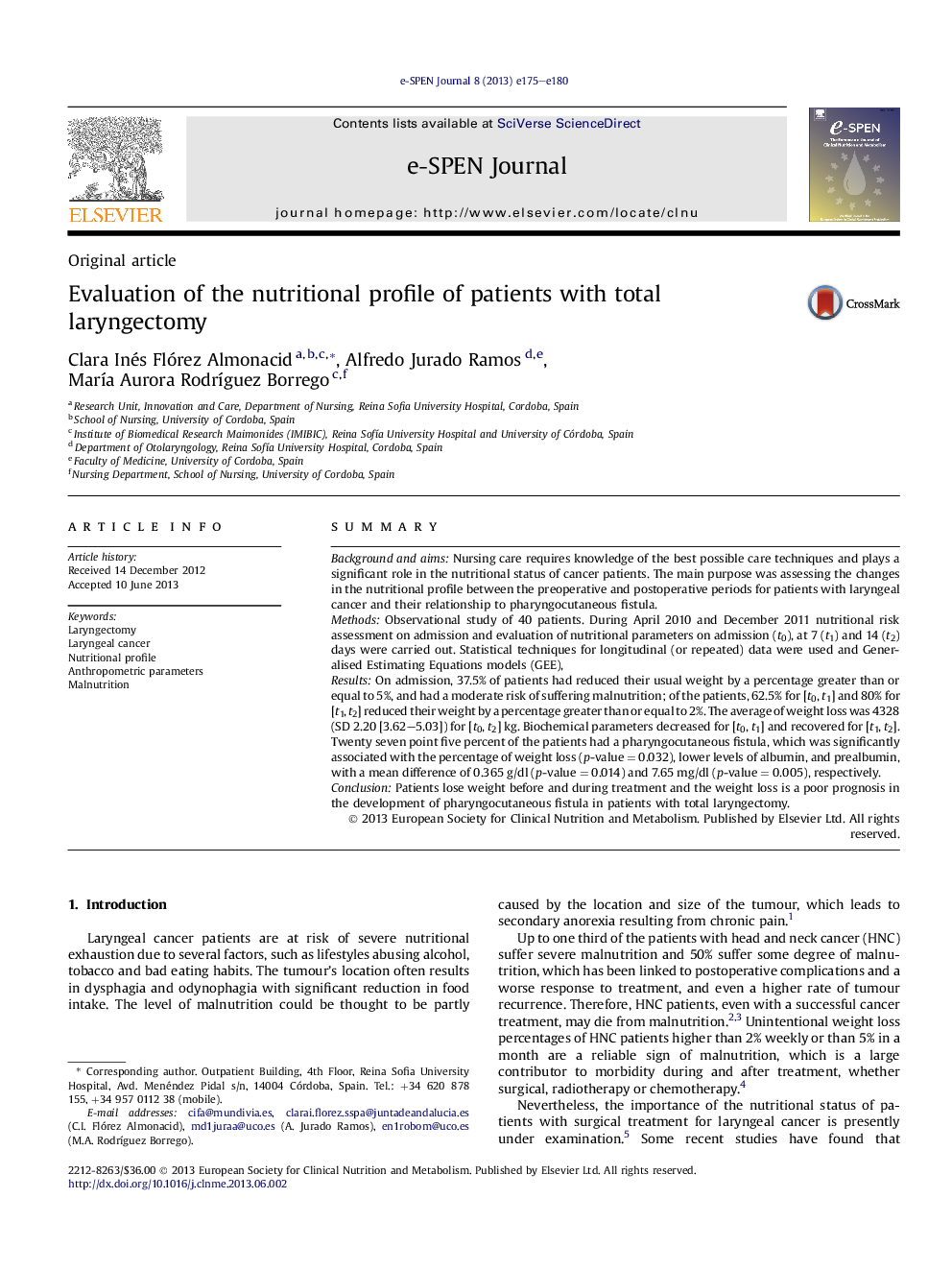| Article ID | Journal | Published Year | Pages | File Type |
|---|---|---|---|---|
| 2686992 | e-SPEN Journal | 2013 | 6 Pages |
SummaryBackground and aimsNursing care requires knowledge of the best possible care techniques and plays a significant role in the nutritional status of cancer patients. The main purpose was assessing the changes in the nutritional profile between the preoperative and postoperative periods for patients with laryngeal cancer and their relationship to pharyngocutaneous fistula.MethodsObservational study of 40 patients. During April 2010 and December 2011 nutritional risk assessment on admission and evaluation of nutritional parameters on admission (t0), at 7 (t1) and 14 (t2) days were carried out. Statistical techniques for longitudinal (or repeated) data were used and Generalised Estimating Equations models (GEE),ResultsOn admission, 37.5% of patients had reduced their usual weight by a percentage greater than or equal to 5%, and had a moderate risk of suffering malnutrition; of the patients, 62.5% for [t0, t1] and 80% for [t1, t2] reduced their weight by a percentage greater than or equal to 2%. The average of weight loss was 4328 (SD 2.20 [3.62–5.03]) for [t0, t2] kg. Biochemical parameters decreased for [t0, t1] and recovered for [t1, t2]. Twenty seven point five percent of the patients had a pharyngocutaneous fistula, which was significantly associated with the percentage of weight loss (p-value = 0.032), lower levels of albumin, and prealbumin, with a mean difference of 0.365 g/dl (p-value = 0.014) and 7.65 mg/dl (p-value = 0.005), respectively.ConclusionPatients lose weight before and during treatment and the weight loss is a poor prognosis in the development of pharyngocutaneous fistula in patients with total laryngectomy.
